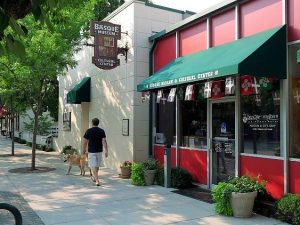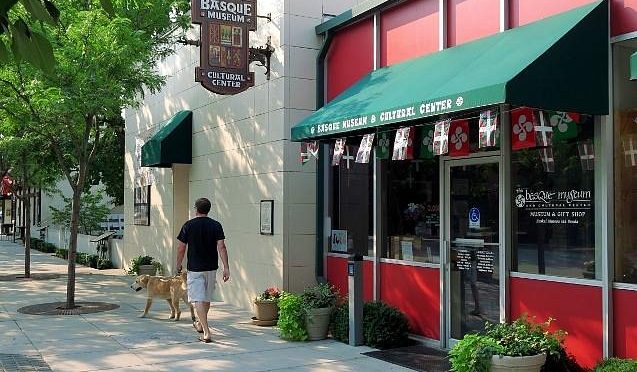Situated in the heart of downtown Boise, the Basque Museum and Cultural Center is a centerpiece of the Basque community in Idaho. With a variety of exhibits highlighting Basque history in Idaho and the American West, they provide a glimpse into the lives of the men and women who helped shape Basque identity in the United States. They also have tremendous resources at hand that document much of that history. If you have the chance, I highly recommend stopping by, saying hello, and learning something new about Basques in America. And if you can’t visit Boise, you can always check out their website.

- The Basque Museum and Cultural Center (BMCC), which has the mission “preserve, promote, and perpetuate Basque history and culture,” was founded in 1985. It began in the Cyrus Jacobs-Uberuaga house, an old boarding house that sits next to the Boise Basque Center. It wasn’t until 1993 that the museum moved to its current location next door.
- The BMCC curates exhibits that highlight the Basque experience in the American West. Right now, they have exhibits on Hemingway and his relationship with the Basque Country, the Basque community in the Western United States, and the life of a Basque sheepherder. In the past, they have had exhibits on Basque women, Gernika, Basque dancing, and Basque military veterans. This is in addition to their permanent display of a Basque sheep wagon.
- In addition to their exhibits, the BMCC does extensive research into the history of the local Basque community and more broadly the Basques of the American West. They aid visitors with genealogical research and have a vast library of resources on Basque history. They also host a virtual version of Sol Silen’s The History of the Basques in the West, which contains brief biographies of many Basques who immigrated to the United States before it was published in 1917. They also have a collection of oral histories, audio interviews of many local Basques.
- The Cyrus Jacobs-Uberuaga house, officially part of the BMCC, operated as a boarding house from 1910-1965. In 1928, the Uberuaga family bought it from their partners and ran it until it closed. It was a critical stopping point for Basques that came to Idaho and beyond to herd sheep. It, and other boardinghouses like it, were central to the social life of those Basques. My Uncle Jose spent more than a few nights there.
- Finally, they also have a gift shop that features items made by local artists and craftspeople, as well as specialty items from the Basque Country.
A full list of all of Buber’s Basque Facts of the Week can be found in the Archive.
Primary sources: The Basque Museum and Cultural Center
Discover more from Buber's Basque Page
Subscribe to get the latest posts sent to your email.


